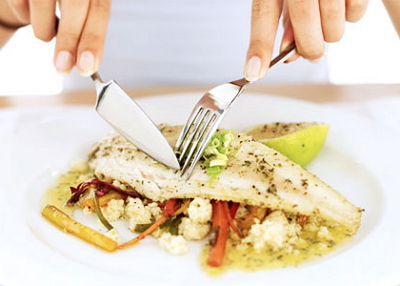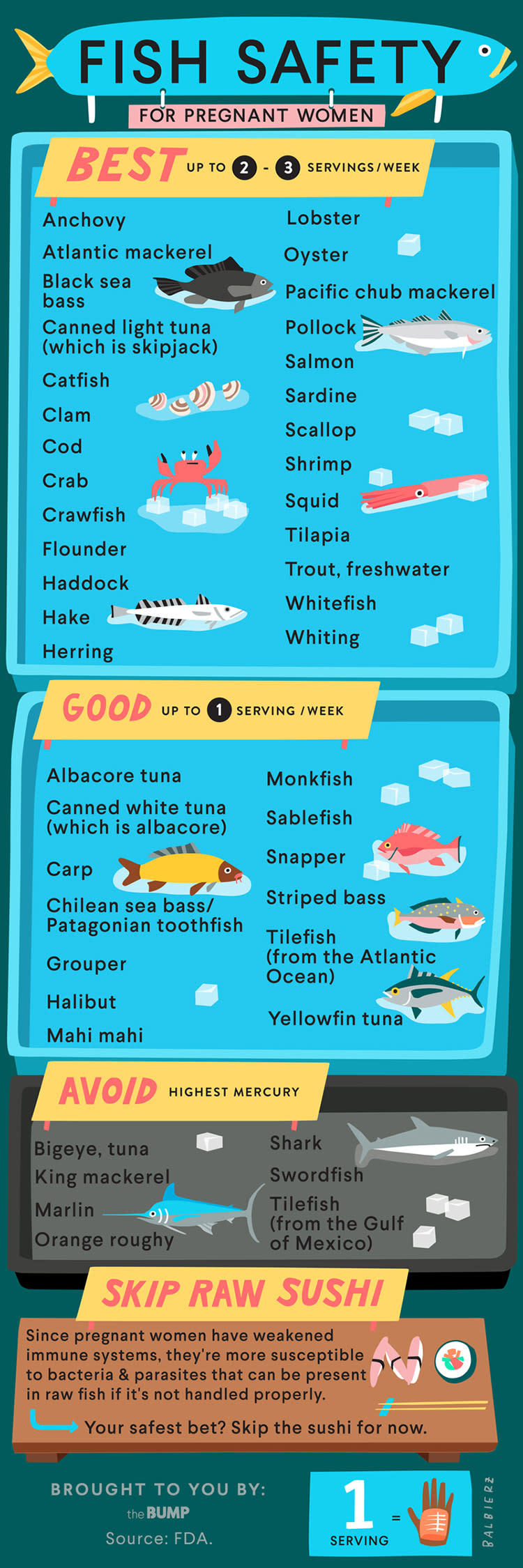Fish to Avoid During Pregnancy

Contents:
- Fish to Avoid in Pregnancy
- Why is Fish Essential During Pregnancy?
- What Kinds of Fish are Allowed During Pregnancy?
- What Kinds of Fish Should You Avoid During Pregnancy?
- What Can You Eat Except Fish?
Fish to Avoid in Pregnancy
Fish is an indispensable source of polyunsaturated omega-3 fatty acids, protein, iodine and vitamin D. These components promote fetus proper development and maintain a woman’s health throughout the pregnancy period. Not all kinds of fish are allowed when you are pregnant. There are some restrictions in fish diet during pregnancy. What fish can you consume not causing harm to your baby’s health?
Why is Fish Essential During Pregnancy?
Fish contains a huge amount of valuable minerals and vitamins useful for human body, especially in the pregnancy period. Fish is a source of phosphorus, selenium, magnesium, calcium, and vitamin A. Sea fish supplies human body with fluoride, potassium, vitamin D, and iodine – an element, which is rarely found in food, but plays an important role in fetus development.
An additional advantage of fish is that it is easily digested. Therefore, fish is recommended to people, who have gastrointestinal problems, which are common during pregnancy as well.
Sea fish (herring, sardine, salmon, mackerel, etc.) differs from freshwater fish in nutrients. Sea fish contains a great amount of omega-3 fatty acids, which are essential during pregnancy.
Marine algae are primary sources of fatty acids. Algae are consumed by small marine organisms, which in turn become the food for fish. Fish inhabiting natural waters contains a greater amount of omega-3 fatty acids in comparison with fish, which is bred in simulated conditions and contains fatty acids omega-6.
The most important omega-3 fatty acids are eicosapentaenoic acid (EPA) and docosahexaenoic acid (DPA). These components are essential during pregnancy and produce a positive effect on fetus development.
What Kinds of Fish are Allowed During Pregnancy?

Most nutritional kinds of fish are red fish (salmon, chum salmon, and trout), sardines, mackerel, herring, cod, catfish, flounder and whitefish. A pregnant woman can consume these kinds of fish 2 times a week. This dosage is safe during pregnancy and is beneficial for baby’s health.
It is recommended to cook fresh or frozen fish on steam or bake it in foil. Fish cooked this way will not lose its valuable nutrients. Moreover, steamed or baked fish does not contain excess calories and carcinogens (while frying with oil). It is also advisable to consume high-quality canned fish.
What Kinds of Fish Should You Avoid During Pregnancy?
Although, fish is rich in valuable elements, specialists recommend being cautious in consuming fish during pregnancy. Due to progressing environmental pollution, it is not easy to find pure healthy food.
Some kinds of fish are contaminated with heavy metals, such as mercury and dioxins. Therefore, you should consume fish, which contains high amount of omega-3 fatty acids and does not accumulate harmful substances.
The most dangerous compounds are found in large predatory fish, which feeds on small fish and crustaceans and may accumulate dirty substances. These are long-living kinds of fish, such as tuna, swordfish, shark, halibut, marlin, and king mackerel. Chemical compounds contained in these kinds of fish may cause developmental disorders of the nervous system in fetus. Mercury compounds are considered especially dangerous for health.
The older the fish age is the more hazardous substances it may possess. Therefore, it is not recommended to eat the above listed types of fish more often than once a week in portion exceeding 100 g (3.53 oz). It concerns particularly tuna, which lives 30-40 years. It is advisable to buy canned tuna produced by different manufactures in order to reduce the possible risks.
Taking into consideration that chemical pollutions concentrate mainly in fat, it is advisable to eat low-fat types of fish. During the first three months of pregnancy, women should not take in cod liver oil.
Experts recommend avoiding freshwater fish caught in contaminated waters. It is better to refuse from raw fish dishes, such as salmon tartar, sushi, pickled and salted herring, cold smoked fish, and dry-cured delicacies. These dishes may contain Listeria, which is dangerous for an expectant mother and a baby. In addition, the use of the above kinds of fish can lead to the tapeworm contamination.
It is necessary to be careful with seafood, as it spoils quickly. For example, shellfish filters a great amount of water and absorbs the contaminated substances from the seabed.
What Can You Eat Except Fish?
If an expectant mother refuses from fish due to allergy or taste preferences, the doctors recommend taking dietary supplements containing omega-3 fatty acids. It is necessary when fish is not included in the diet.